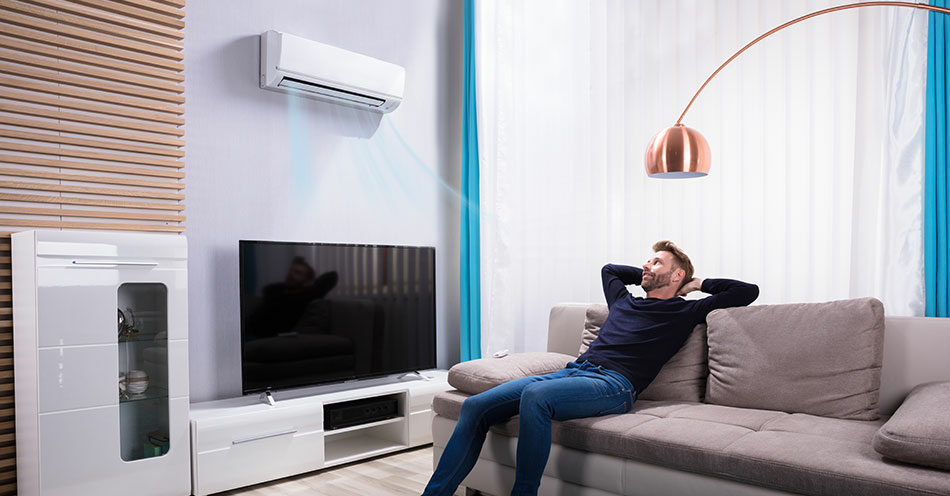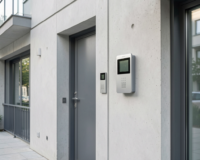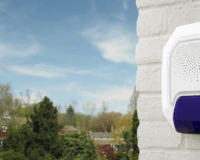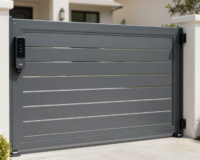The concept of smart homes has evolved rapidly over the past decade, with advancements in technology integrating seamlessly into our daily lives. Among the myriad of innovations, smart home climate control systems stand out for their significant impact on comfort, energy efficiency, and convenience. These systems leverage cutting-edge technology to regulate indoor environments automatically, ensuring optimal living conditions while reducing energy consumption and costs. This article delves into the benefits of smart home climate control, exploring how these systems transform our living spaces and contribute to a sustainable future.
Read more: Choose The Right Heating and Cooling Systems for Melbourne’s Climate
The Necessity of a Smart Thermostat and Advanced Climate Control
When you experience discomfort from being too hot or too cold, it can significantly affect your well-being. Just as you wouldn’t endure an uncomfortable bed, there’s no reason to put up with a home that’s too warm in the summer or too cold in the winter. By integrating automated climate control into your smart home systems, you can maintain the perfect home temperature at all times.
A smart thermostat is an essential component of smart home climate control systems. To simplify your life, it can be programmed to turn on the heat at a specific time in the morning or when the temperature drops to a set level. Connecting your thermostat to air conditioning systems also means you can cool your home to your preferred temperature during the hottest days. If you prefer a cooler environment, smart thermostats enable you to set the air conditioning to activate just in time to cool your living spaces before you arrive home from work.
1. Enhanced Comfort and Convenience
One of the primary benefits of smart home climate control systems is the enhanced comfort and convenience they offer. Traditional thermostats require manual adjustments, which can be cumbersome and inefficient. In contrast, smart thermostats learn the occupants’ preferences and routines, adjusting the temperature automatically to maintain a comfortable environment. This level of automation ensures that the home is always at the desired temperature without the need for constant manual intervention.
Moreover, smart climate control systems can be controlled remotely via smartphone apps, allowing users to adjust settings from anywhere. This feature is particularly useful for individuals with unpredictable schedules, as they can ensure their home is at the perfect temperature upon arrival. Additionally, voice control integration with virtual assistants like Amazon Alexa and Google Assistant further simplifies the user experience, enabling hands-free adjustments with simple voice commands.
2. Energy Efficiency and Cost Savings
Another significant advantage of smart home climate control systems is their potential for energy efficiency and cost savings. Traditional heating, ventilation, and air conditioning (HVAC) systems often operate inefficiently, leading to unnecessary energy consumption and higher utility bills. Smart thermostats, on the other hand, optimize energy usage by learning the household’s patterns and adjusting the temperature accordingly.
Many smart thermostats use advanced algorithms to analyze factors such as weather conditions, occupancy, and even the home’s thermal characteristics. By taking these variables into account, the system can minimize energy waste, ensuring that heating and cooling are only applied when necessary. For example, if the system detects that no one is home, it can automatically adjust the temperature to an energy-saving mode.
Studies have shown that smart thermostats can significantly reduce energy consumption. The Environmental Protection Agency (EPA) estimates that households using smart thermostats can save an average of 8-15% on their heating and cooling bills. Over time, these savings can offset the initial investment in smart climate control systems, making them a cost-effective solution for homeowners.
Read more: Why Consider Electric Heating and Cooling Systems?
3. Improved Indoor Air Quality
Indoor air quality is a crucial aspect of a healthy living environment. Poor air quality can lead to various health issues, including allergies, asthma, and respiratory infections. Smart home climate control systems can play a vital role in maintaining good indoor air quality by monitoring and regulating various environmental parameters.
Many smart thermostats come equipped with sensors that detect humidity levels, particulate matter, and volatile organic compounds (VOCs). When these sensors identify poor air quality, the system can take corrective actions, such as adjusting ventilation or activating air purifiers. Additionally, smart climate control systems can integrate with other smart home devices, such as air quality monitors and humidifiers, to provide a comprehensive solution for maintaining optimal indoor air quality.
4. Personalized Climate Zones
Another benefit of smart home climate control systems is the ability to create personalized climate zones within a home. Traditional HVAC systems typically operate on a one-size-fits-all approach, where a single thermostat controls the temperature for the entire house. This can lead to uneven heating and cooling, with some rooms being too hot or too cold.
Smart climate control systems, however, can be configured to create multiple zones, each with its own temperature settings. This zonal approach allows for more precise control over the indoor environment, ensuring that each room is maintained at the desired temperature. For example, bedrooms can be kept cooler at night for better sleep, while living areas can be warmer during the day for comfort.
Zoning also contributes to energy efficiency, as it allows the HVAC system to focus on specific areas rather than heating or cooling the entire house. This targeted approach reduces energy consumption and can lead to significant cost savings.
5. Integration with Renewable Energy Sources
As the world moves towards more sustainable energy solutions, smart home climate control systems can play a pivotal role in integrating renewable energy sources into residential energy management. Many smart thermostats are designed to work seamlessly with solar panels, wind turbines, and other renewable energy systems.
By synchronizing with renewable energy sources, smart climate control systems can optimize energy usage based on the availability of renewable power. For instance, during periods of high solar energy production, the system can increase cooling or heating to store energy in the form of thermal mass, reducing the reliance on the grid during peak hours. This not only maximizes the use of renewable energy but also helps homeowners save on energy costs.
Additionally, some smart thermostats offer demand response capabilities, allowing utility companies to manage energy loads more effectively. During peak demand periods, utility companies can remotely adjust thermostats to reduce energy consumption, helping to stabilize the grid and prevent blackouts. Homeowners participating in demand response programs may receive financial incentives, further enhancing the cost savings associated with smart climate control systems.
6. Environmental Impact
The environmental benefits of smart home climate control systems extend beyond energy efficiency and renewable energy integration. By reducing energy consumption, these systems help lower greenhouse gas emissions, contributing to the fight against climate change. According to the International Energy Agency (IEA), buildings are responsible for approximately 28% of global energy-related CO2 emissions. Improving the energy efficiency of residential buildings through smart climate control can significantly reduce this figure.
Moreover, smart climate control systems often come with features that promote sustainable living. For example, some systems provide users with insights and recommendations on how to reduce their energy consumption and carbon footprint. By raising awareness and encouraging sustainable practices, smart climate control systems contribute to a broader cultural shift towards environmental responsibility.
7. Enhanced Security and Safety
Smart home climate control systems can also enhance the security and safety of a home. Many smart thermostats are equipped with sensors that detect unusual activity, such as sudden temperature changes or prolonged periods of inactivity. These sensors can alert homeowners to potential issues, such as a malfunctioning HVAC system or a fire hazard.
Additionally, smart climate control systems can be integrated with other smart home security devices, such as smoke detectors, carbon monoxide detectors, and security cameras. This integration allows for a more comprehensive approach to home safety, with the climate control system responding to potential threats by adjusting ventilation, shutting down the HVAC system, or alerting emergency services.
8. Future-Proofing Your Home
Investing in smart home climate control systems is also a way to future-proof your home. As technology continues to advance, smart home systems are becoming increasingly sophisticated, offering new features and capabilities. By adopting smart climate control now, homeowners position themselves to take advantage of future innovations and upgrades.
Many smart thermostats receive regular software updates, which can introduce new functionalities and improve existing ones. For example, future updates may enhance the system’s ability to integrate with emerging technologies, such as advanced AI algorithms or new renewable energy solutions. By keeping their smart climate control systems up-to-date, homeowners can ensure they are always benefiting from the latest advancements in technology.
Conclusion
Smart home climate control systems offer a multitude of benefits that enhance comfort, improve energy efficiency, and contribute to a more sustainable future. From personalized climate zones and remote control capabilities to integration with renewable energy sources and improved indoor air quality, these systems transform the way we manage our living environments. As technology continues to evolve, the potential of smart climate control systems will only increase, making them an essential component of modern, efficient, and eco-friendly homes.
By investing in smart home climate control, homeowners can enjoy a more comfortable and convenient living experience while reducing their energy consumption and environmental impact. As we move towards a more sustainable future, smart climate control systems will play a crucial role in shaping the homes of tomorrow.






